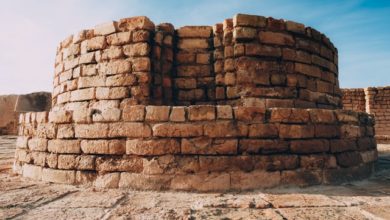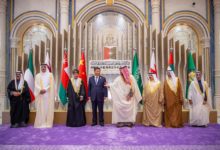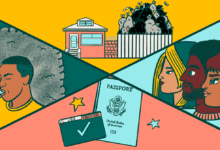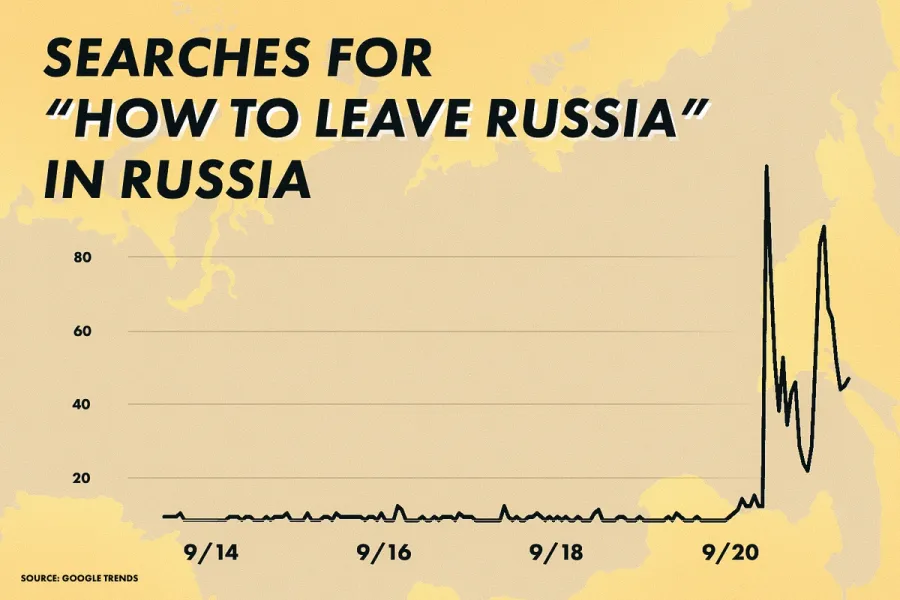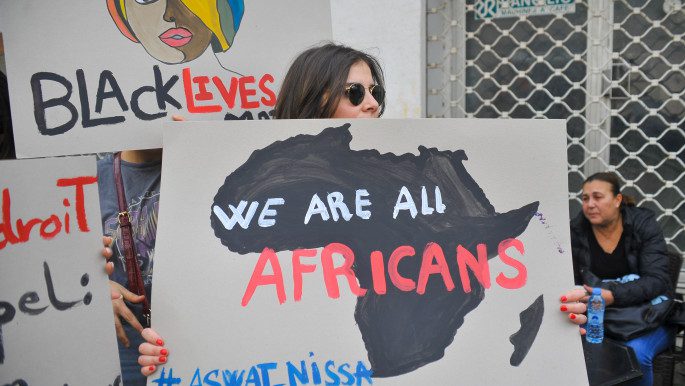
Tunisia: The New Climate of fear for the Sub-Saharan Migrants
Through: The Tunisian president’s racist statements on African migrants, which reflect a far-right demographic conspiracy theory, generated community alarm and triggered a surge of arrests, social violence, and hate speech.
In a speech to Tunisia’s National Security Council , President Kais Saied called for immediate action to curb migration from Sub-Saharan Africa, which he said was part of a planned plot to change the country’s demographic makeup.
“The hidden purpose of the successive waves of illegal immigration is to consider Tunisia an African country that has no relation to the Arab and Islamic nations,” he added, referring to a “criminal strategy from the beginning of the century to transform the demographic structure of Tunisia”.
The president used far-right ‘great replacement’ rhetoric to accuse unknown parties of facilitating the settlement of undocumented African immigrants in Tunisia, tying them to violence and criminality.
At a meeting with Interior Minister Taoufik Cherfeddine, he echoed the same rhetoric, denying that his words were racist.
Moussa Faki Mahamat, head of the African Union Commission, sharply criticized Saied’s “awful comments,” urging AU member states to take action “refrain from racialized hate speech”.
The president’s speech sparked uproar among activists and minority groups in the north African country, who immediately branded it as “racist” and “fascist”.
Saied’s provocative remarks came amid a campaign of persecution against critics and political opponents, who are frequently labeled as “traitors” and “enemies of the state” by the head of state.
Tunisians are becoming increasingly agitated as prices rise, necessary products become scarce, and the economic situation worsens.
The words come in the wake of a huge racial hate campaign and discriminatory propaganda on social media launched by numerous groups, who have advocated for further action on the ground. The Tunisian Nationalist Party has recently advocated for the repatriation of Sub-Saharan African migrants.
There have also been reports of widespread arrests of migrants.
On February 16, over 20 local rights organizations, coordinated by the Tunisian Forum for Economic and Social Rights (FTDES), condemned the detention of 300 migrants in a variety of cities following ID checks.
Others were jailed while attending court to support their family.
Additional migrants were apprehended last week as part of a purported national security drive to check the documents of African workers, while others suspected of having an illegal immigration status were arrested.
A newly created Tunisian Anti-Fascist Front made up of several independent activists and members of civil society organizations conducted a march in central Tunis on Saturday under the slogan of “Abolish Fascism, Tunisia is an African Country” in reaction to the current wave of racism.
Hundreds of demonstrators marched from the Tunisian journalist union SNJT’s offices toward Habib Bourguiba Avenue, singing slogans such as ‘Down with racism.
Tunisia is an African country, the people desire human fairness, and flags in sympathy with migrants are being raised.
Once the demonstration neared the French embassy property, people also criticized French colonization.
The front demanded that Tunisian authorities end all forms of violence, harassment, and arrest of African migrants, whether documented or not.
The president’s comments have worsened the country’s rising incitement against immigrants, particularly from Sub-Saharan African nations, many of whom are already in difficult positions, exposing them to attacks by Tunisians and indiscriminate arrests by police.
In recent days, social media has been flooded with reports of migrants being forcibly evicted from their houses, children being seized from nursery schools and detained with their parents, and widespread searches.
Mob violence has also been recorded, with reports of groups approaching migrants’ homes and driving them out.
Meanwhile, African ‘irregular’ migrants are being barred from using public transit, with many migrants staying at home for fear of being apprehended or assaulted. After intimidation, harassment, and arbitrary arrests, the Association of African Students and Interns in Tunisia (AESAT) stated on Wednesday instructing students not to leave their rooms unless necessary and to have their residence cards on them at all times.
Several Africans have already decided to flee the nation amid the present environment of dread.
Complicated bureaucratic procedures make obtaining a resident visa in Tunisia difficult and expensive, leaving many people without legal immigration status.
According to the Tunisian National Institute of Statistics, more than 21,000 African nationals live in Tunisia, accounting for less than 1% of the country’s population.



